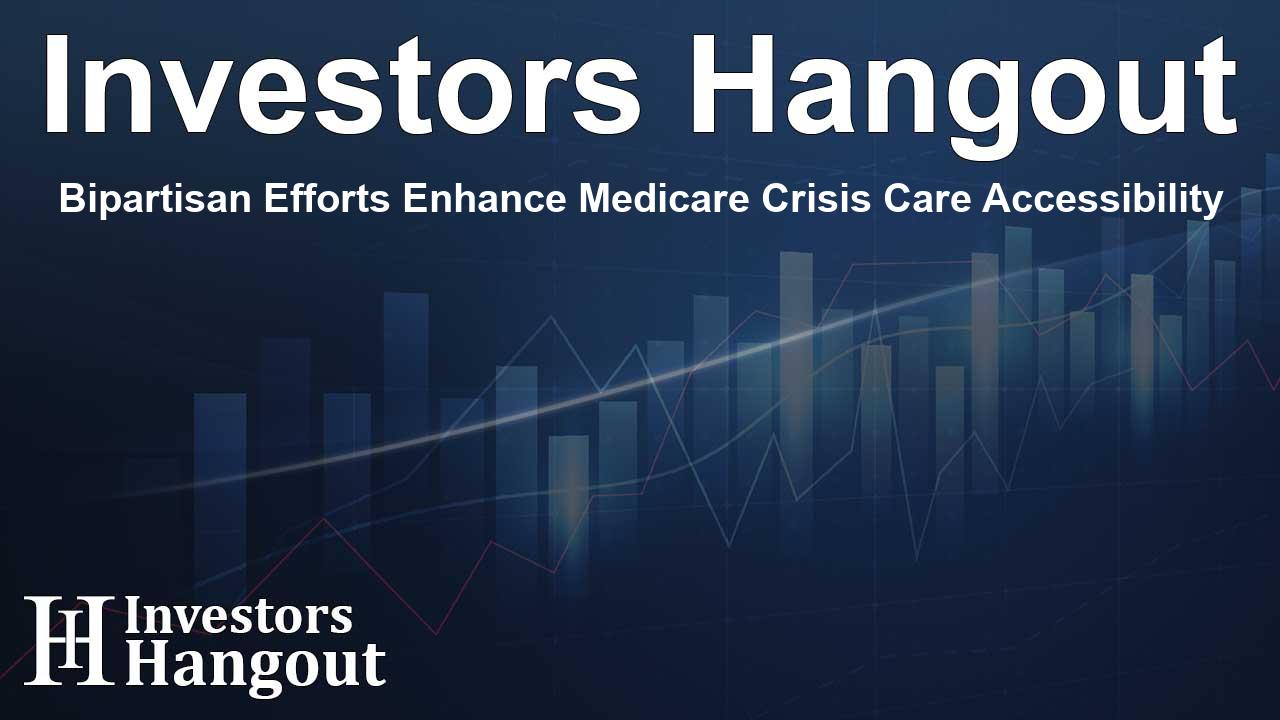Bipartisan Efforts Enhance Medicare Crisis Care Accessibility

Innovative Legislation for Behavioral Health Care Expansion
Connections Health Solutions, a leader in immediate-access emergency behavioral health care, warmly welcomes the recent bipartisan efforts by Congressmen Tony Cárdenas, David Schweikert, and Brian Fitzpatrick. They have introduced a pivotal piece of legislation known as the 'Crisis Care Access and Response Expansion for Behavioral Health Act of 2024,' also referred to as the 'CARE for Behavioral Health Act of 2024.' This groundbreaking initiative aims to create a Medicare demonstration program specifically for crisis stabilization services, marking a substantial advancement for the healthcare landscape.
Filling the Gaps in Community-Based Care
In the United States, millions of individuals currently lack the necessary Medicare and private insurance coverage to access community-based crisis care. This new measure is designed to close that gap, exploring value-based arrangements that enhance high-quality crisis care services. The effort is particularly crucial as it addresses a growing need for robust behavioral health solutions nationwide.
Medicare has been limited in its coverage for community-based crisis stabilization services, causing many facilities to operate on strained local and state funds. This financial instability inhibits timely access to life-saving interventions, and commercial insurers often hesitate to finance integrated treatment models employed by crisis receiving and stabilization facilities. By ensuring that Medicare beneficiaries have timely access to specialized behavioral health care, the CARE for Behavioral Health Act seeks to reduce unnecessary emergency room visits and improve overall healthcare outcomes.
Voices from the Industry
Colin LeClair, the CEO of Connections Health Solutions, shared insights on the implications of this pilot program. He stated, 'This initiative will significantly improve access to behavioral health crisis care, helping to prevent unnecessary visits to emergency departments while easing the financial burden on our healthcare systems.' He expressed appreciation for the sponsors of the legislation, emphasizing the importance of measuring the effectiveness of crisis systems nationwide to enhance patient care satisfaction.
Broader Vision for Crisis Care Continuum
The proposed legislation aligns with a vision for a comprehensive crisis care continuum. Integrating Medicare funding into the behavioral health infrastructure is expected to empower individuals in crisis to receive the right care in the most appropriate setting. Experts agree that well-structured measures can lead to enhanced community health, lowered healthcare costs, and bolster satisfaction levels among providers and patients alike.
A Commitment to Quality Care
Connections Health Solutions has been dedicated to designing and implementing robust behavioral health crisis care systems for over 15 years. Their focus on immediate access to care reflects a commitment to delivering superior quality and saving costs across diverse patient populations. The organization operates crisis response centers and mobile units throughout the system, focusing on providing services that meet the needs of individuals in a safe and supportive environment.
About Connections Health Solutions
Over the last decade and a half, Connections Health Solutions has established itself as a frontrunner in innovative behavioral health strategies. The organization’s model, recognized by esteemed bodies such as SAMHSA and the National Council for Mental Wellbeing, emphasizes an integrated approach to care combining medical assistance with recovery-oriented support. This methodology aims at connecting individuals to essential resources swiftly and effectively, helping them return to their everyday lives with minimal disruption.
In recognition of their impactful contributions to social well-being, Connections Health Solutions was named a 2024 Fierce 50 social impact honoree, spotlighting their commitment to fostering innovation and improving mental health services across the nation.
Frequently Asked Questions
What is the 'CARE for Behavioral Health Act of 2024'?
This act introduces a Medicare demonstration program focused on enhancing crisis stabilization services for individuals in need of mental health support.
Who introduced the 'CARE for Behavioral Health Act'?
The legislation was introduced by Congressmen Tony Cárdenas, David Schweikert, and Brian Fitzpatrick.
How does the legislation improve access to behavioral health care?
It establishes reimbursement provisions for crisis services under Medicare, addressing significant funding gaps and promoting timely access to care.
What is the goal of Connections Health Solutions?
The organization aims to enhance immediate-access behavioral health crisis care and improve the quality of services across all populations.
Why is this legislation crucial now?
The bill responds to a growing demand for community-based crisis care, significantly improving services and outcomes for Medicare beneficiaries.
About Investors Hangout
Investors Hangout is a leading online stock forum for financial discussion and learning, offering a wide range of free tools and resources. It draws in traders of all levels, who exchange market knowledge, investigate trading tactics, and keep an eye on industry developments in real time. Featuring financial articles, stock message boards, quotes, charts, company profiles, and live news updates. Through cooperative learning and a wealth of informational resources, it helps users from novices creating their first portfolios to experts honing their techniques. Join Investors Hangout today: https://investorshangout.com/
Disclaimer: The content of this article is solely for general informational purposes only; it does not represent legal, financial, or investment advice. Investors Hangout does not offer financial advice; the author is not a licensed financial advisor. Consult a qualified advisor before making any financial or investment decisions based on this article. The author's interpretation of publicly available data shapes the opinions presented here; as a result, they should not be taken as advice to purchase, sell, or hold any securities mentioned or any other investments. The author does not guarantee the accuracy, completeness, or timeliness of any material, providing it "as is." Information and market conditions may change; past performance is not indicative of future outcomes. If any of the material offered here is inaccurate, please contact us for corrections.